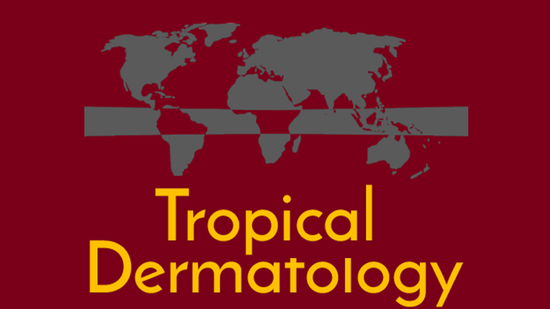
Patients affected by skin conditions present signs and symptoms that guide the next steps for clinicians to reach the correct diagnosis. Sometimes a syndrome is enough to establish a diagnosis while in other instances it is necessary to perform specific tests.
This course provides an overview of skin diseases seen in the tropics with emphasis on diagnoses that are common or of medical/public health importance. The diseases are organized by presenting complaint. This is designed to reflect how clinicians evaluate patients: by clinical presentation rather than by aetiology of disease.
For each disease, the key clinical findings, aetiology, diagnosis and management are discussed.
Photo credit: University of Minnesota
Langue: English
Tropical Dermatology
Informations sur le cours
This course is also available in the following languages:
Русский - Português - Español - Bahasa Indonesia
This course has been created by the University of Minnesota (UMN) and it is made available here thanks to an agreement signed between UMN and WHO.
The course is divided into 7 modules. The first module is a review of the terminology used to describe skin diseases; these are essential to know before proceeding with the rest of the course. The next six modules are organized by presentation of illness:
- Itch in the Tropics
- Pigmentary Disorders
- Enlarged Limbs
- Cutaneous Nodules
- Fever and Rash
- Cutaneous Ulcers
The aim of the course is to provide information about tropical dermatology with focus on syndromes to increase knowledge and skills of front-line health workers.
Learning objectives: By the end of this course, you should be able to:
- describe the different types of skin lesions;
- explain the aetiology of the main skin diseases found in the tropics;
- describe how the diagnosis of those diseases is made, and
- explain how to treat those skin tropical diseases.
Course duration: Approximately 5 hours.
Certificates: A Record of Achievement certificate will be available to participants who score at least 80% in the final assessment. Participants who receive a Record of Achievement can also download an Open Badge for this course. Click here to learn how.

Contenu du cours
Module 1: Introduction:
This introductory module gives definitions and provides examples of the lesions that affect the skin. It addresses primary lesions, secondary features, shape and distribution.Module 2: Itch in the tropics:
By the end of this module, you should be able to: list the type of skin lesions associated with itching; describe the diseases under each main skin lesion, and how to manage those diseases.Module 3: Pigmentary disorders:
By the end of this module, you will be able to: list the different pigmentary disorders and explain what causes them; describe their key clinical features, and how to diagnose and treat them.Module 4: Enlarged limbs:
By the end of this module, you will be able to: differentiate the different types of enlarged limbs; describe what causes them; explain their key clinical features, and how to diagnose and treat them.Module 5: Cutaneous nodules:
By the end of this module, you will be able to: classify the different types of nodules; explain what causes them; describe their key clinical features, and how to diagnose and treat them.Module 6: Fever and Rash:
By the end of this module, you will be able to: list the main diseases associated with fever and rash; describes what causes them; explain their key clinical features, and how to diagnose and treat them.Module 7: Cutaneous ulcers:
By the end of this module, you will be able to: list the main diseases presenting as ulcers; describe what causes them; explain their key clinical features, and how to diagnose and treat them.Final assessment
Inscrivez-moi à ce cours
Certificate Requirements
- Obtenez un certificat de réussite en gagnant plus de 80% du nombre maximal de points pour la somme de toutes les tâches hebdomadaires.
- Obtenez un Open Badge en complétant le cours.